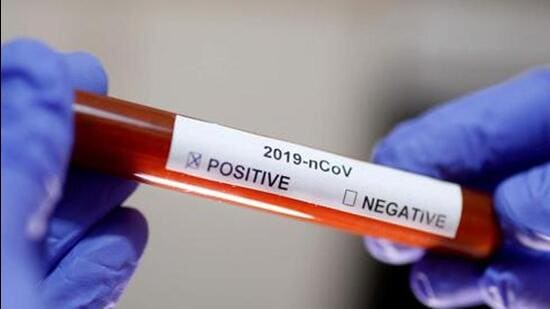Omicron’s XBB variant cases rise in India; experts on symptoms, severity, chances of hospitalisation
A new batch of Omicron sub-variants has entered India, raising fears of a fresh wave in the coming months, as the country gears up to celebrate one of its biggest festival Diwali. Omicron’s XBB variant, the recombinant of BA.2.75 and BJ.1, that caused a rapid spike in the number of Covid cases in Singapore, has been detected in India, and is now driving a surge in Covid cases in Maharashtra, Kerala and other parts of the country. Experts have advised taking all precautions against this highly-infectious strain that almost doubled the cases in Singapore in a matter of few days. BA.5.1.7 and BF.7 too have registered their presence in India as reported by Gujarat Biotechnology Research Centre. (Also read: Omicron BF.7 in India; experts on symptoms of new Covid variant, possibility of fresh wave in Diwali)
The symptoms of Omicron’s XBB variant are said to be mild and not very dangerous much like its other cousins but due to the massive mutation in its structure, it may increase the number of cases because of which number of hospitalisations may go up, say infectious disease specialists.
“A new variant of Covid-19 virus is here and has accounted for more than 70 cases across 5 states in India. The new strain, called XBB variant was detected in August in the US and in a week’s time has led to more than doubling up of positive cases in Singapore (from 4700 to 11,700) in a single day,” says Dr Charu Dutt Arora, Consultant Physician and Infectious Disease Specialist Head, Ameri Health, Asian Hospital, Faridabad told HT Digital in an interview.
WHAT IS XBB VARIANT

“Like all other viruses, Covid-19 continues to mutate and evolves into more virulent, transmissible and evasive strains. XBB variant belongs to the Omicron lineage, scientifically known as BA.2.10 and is a combination of BJ.1 and BA.2.75. It was detected in the US in August 2022 and since then, it is replacing other Omicron variants just like Omicron replaced Delta variant worldwide,” says Dr Arora.
IS COVID EVOLVING TO BE MORE DANGEROUS?
XBB variant is reported to have much more mutations that the previous Omicron sub-variants and has mutated in a way that immunity acquired through previous infections and vaccines may not work. This is also causing increase in hospitalisation cases in Singapore.
“XBB variant is a new variant of Omicron and recent surge has been noted in Singapore and also cases are being reported from India. So, the variant has a lot of mutation especially in the receptor binding domain, the outer surface protein of this Covid virus leading to the immune invasion that means the common existing antibodies against the Coronavirus that is being acquired by either vaccination or through natural infection (won’t work). This variant has mutated in such a way that it is able to evade this immunity and cause this infection. Now this is what is being reflected also in this current ongoing Singapore wave where we see that the recent hospitalisation has also increased because of the increasing number of people,” says Dr Ankita Baidya, Consultant – Infectious Disease, HCMCT Manipal Hospital, Dwarka in a telephonic interview with HT Digital.
OMICRON XBB VARIANT: HOW DEADLY IT IS
With the festive season going on, large number of gatherings are happening and with no travel restrictions around, there is a high chance of increase in the positive cases in next 3-4 weeks.
“As of now, the positive cases of XBB variant are approximately 7% of all cases. Still, BA.2.75 are predominantly reported in Genomic sequencing. XBB is learnt to be more evasive, can lead to infections in previously infected and vaccinated individuals. There are multiple changes and mutations in the spike protein structure of the virus which make it resistant to the vaccination. However, the hospitalisation rate and severity of illness is low currently,” says Dr Arora.
SYMPTOMS OF OMICRON XBB VARIANT
Dr Baidya says the symptoms of XBB variant are not very dangerous and worrisome.
“In this variant also, most of the cases are mild with upper respiratory tract symptoms like sore throat, cough, nasal congestion, and few people are also coming up with a lot of myalgia and loose motions or abdominal complaints. The severity is not very bad in all cases but yes there are cases especially in people whose immunity is less, people who have diabetes, who are elderly that are showing bad infection and are having chances of hospitalisation – this has been reported from other countries. Infectiousness as I mentioned the structural change in this virus, it is very infectious, that’s the most concerning part that it is able to infect large number of population and in shorter time because its ability to evade immune response of the host that means the current ongoing vaccines might not be very effective to protect against this strain and also the antibody cocktail that is being used to protect against severe infection might not be very useful in this condition,” says Dr Baidya.
“Like other Omicron variant, the symptoms are mainly cough, cold, low-grade fever, sore throat and body pain,” says Dr Arora.
PREVENTION
Dr Arora says there are no specific guidelines of prevention against this variant. Following Covid appropriate behaviour, maintaining cough etiquette and using hand sanitiser regularly is the key. Immunocompromised individuals like elderly, or those suffering from cardiac, kidney and cancer issues should maintain all precautions religiously. One must seek the opinion of a physician when having any symptoms and stay isolated to prevent further spread in the community,” says the expert.
For more latest Lifestyle News Click Here

